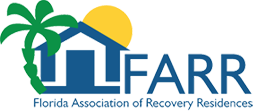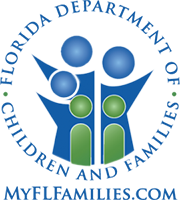What Is Heroin and Why Is It So Addictive?
Heroin is a highly addictive opioid drug that is derived from the seed pod of the opium poppy, a flower that usually grows in Asia, Mexico, and South America. Heroin looks like a white or brown powder, or a sticky black, tarry-like substance that can be injected, snorted, and smoked.
It is an illicit (illegal) drug in the United States due to its addictiveness, and its dangerous effects, including overdose. Sometimes heroin is used with other drugs like alcohol or cocaine (speedball), making it especially dangerous, as it raises the risk of overdosing.
Heroin is a drug that, like other opioid drugs including morphine, codeine, hydrocodone or oxycodone, quickly binds to the opioid receptors in the brain and in the body, affecting the parts of the brain that control pain, pleasure, heart rate, breathing, and sleeping. It may induce vomiting and nausea, dry mouth, itching of the skin, and cloudy mental function, but the reason people use this drug is that it produces a pleasurable feeling of euphoria due to a flooding of dopamine in the brain. When heroin enters the brain, it may feel like you are in a dream, and you may have trouble stopping using heroin after only one or two uses.
Heroin paraphernalia may look like:
- Small tubes or cut up straws
- Needles
- Small balloons
- Small pieces of foil or spoons with burn marks on them
- Lighters
- Shoelaces or rubber bands
- Small containers or portable lock boxes for storage
Heroin use is sometimes called “chasing the dragon”, “skin popping”, and “speed balling”. Some street names for heroin are:
- H or Big H
- Brown Sugar
- Dope
- Horse
- Junk
- China white
- Black tar
- White
- Smack
Why is Heroin So Addictive?
Heroin feels good, like joy with an overall sense of well-being, and it blocks your body from getting pain messages. The drug also slows your heart rate and breathing down, creating a relaxing feeling in the body. If these processes slow down too much due to overdose you may go into a coma and die. Knowing this, many people still continue to use heroin, because they are addicted.
Heroin is an incredibly strong opioid drug that rapidly crosses the blood-brain barrier, making changes to your brain’s reward system, which creates chemical changes that lead to tolerance, then physical dependency.
It does not matter how you use it (smoking, injecting, or snorting), because the chemical properties of heroin are such that they get into the brain quickly, making changes that can make it hard to stop using it again, even after just a couple uses. You will develop a tolerance to the drug, and the same small amount you started out using will not have the same effectiveness anymore, so you will use more to achieve the same high.
Once the changes in your brain happen, you will feel like you need the drug just to feel normal and to be able to get through a typical day without experiencing uncomfortable, painful, and distressing opioid withdrawal symptoms and cravings. These feelings will make you change your behaviors over time, prioritizing finding and using heroin over anything else, while developing a psychological addiction, believing that you cannot function without heroin. You will begin to display uncontrollable drug-seeking behaviors that take over your daily life, even when there are negative consequences. This is opioid use disorder, also known as addiction.
 The Source quite frankly saved my life and got me back on track, never giving giving up on me. When you are thinking about and looking through all of the different places to go for treatment this is the one that should stand out from the rest.
The Source quite frankly saved my life and got me back on track, never giving giving up on me. When you are thinking about and looking through all of the different places to go for treatment this is the one that should stand out from the rest.




























